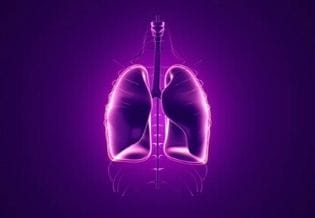Aims & Scope
Core Research Domains
Inflammatory Lung Disease Mechanisms
- Molecular pathways in asthma pathogenesis
- COPD inflammatory cascade mechanisms
- Cytokine signaling in chronic bronchitis
- Epithelial-mesenchymal transition in airway remodeling
- Oxidative stress pathways in lung inflammation
- Immune cell dysfunction in bronchiectasis
Fibrotic Disease Pathophysiology
- Molecular mechanisms of idiopathic pulmonary fibrosis
- Fibroblast activation pathways in lung scarring
- Extracellular matrix remodeling mechanisms
- TGF-β signaling in pulmonary fibrosis
- Epithelial injury and repair mechanisms
- Senescence pathways in fibrotic lung disease
Respiratory Infection Pathogenesis
- Host-pathogen interaction mechanisms in pneumonia
- Viral entry and replication pathways in respiratory epithelium
- Innate immune response mechanisms to respiratory pathogens
- Bacterial virulence factor mechanisms in lung infection
- Immune evasion strategies of respiratory pathogens
- Molecular basis of tuberculosis granuloma formation
Pulmonary Vascular Pathobiology
- Molecular mechanisms of pulmonary hypertension
- Endothelial dysfunction pathways in vascular remodeling
- Smooth muscle cell proliferation mechanisms
- Hypoxia signaling in pulmonary vasculature
- Thrombotic pathway activation in pulmonary embolism
- Angiogenesis dysregulation in vascular lung diseases
Secondary Focus Areas
Biomarker Discovery & Validation
Identification and mechanistic characterization of molecular biomarkers for respiratory disease diagnosis, prognosis, and mechanistic stratification. Focus on pathway-linked biomarkers with mechanistic rationale.
Disease Model Development
Development and characterization of in vitro, ex vivo, and animal models that recapitulate respiratory disease pathophysiology. Emphasis on mechanistic validation and translational relevance.
Occupational Lung Disease Mechanisms
Molecular pathways underlying silicosis, asbestosis, and hypersensitivity pneumonitis. Focus on particle-induced cellular responses, inflammation mechanisms, and fibrotic pathway activation.
Rare Lung Disease Pathophysiology
Mechanistic studies of sarcoidosis, lymphangioleiomyomatosis (LAM), and other rare interstitial lung diseases. Emphasis on unique molecular pathways and disease-specific mechanisms.
Sleep-Disordered Breathing Mechanisms
Molecular and cellular mechanisms underlying obstructive sleep apnea, including intermittent hypoxia signaling, inflammatory pathway activation, and cardiovascular consequences at the molecular level.
Lung Cancer Pathobiology
Molecular mechanisms of lung carcinogenesis, tumor microenvironment interactions, metastatic pathway activation, and resistance mechanisms. Focus on pathophysiological understanding rather than clinical oncology.
Emerging Research Frontiers
Article Types & Editorial Priorities
Expedited Review (4-6 weeks)
Regular Review (6-8 weeks)
Enhanced Editorial Assessment
Editorial Standards & Requirements
Reporting Guidelines
- ARRIVE 2.0 for animal studies
- MIQE for qPCR experiments
- PRISMA for systematic reviews
- STROBE for observational studies
- CONSORT for clinical trials (if mechanistic)
Data Transparency
- Raw data deposition in public repositories
- Omics data in GEO, ArrayExpress, or ProteomeXchange
- Code availability for computational analyses
- Reagent and resource sharing statements
- Reproducibility documentation required
Ethics & Integrity
- IRB/Ethics committee approval for human samples
- IACUC approval for animal studies
- Informed consent documentation
- Conflict of interest disclosure
- Adherence to COPE guidelines
Preprint Policy
- Preprint posting encouraged (bioRxiv, medRxiv)
- Does not affect consideration for publication
- Must be disclosed during submission
- Version control maintained
- Preprint DOI linked in final publication
Ready to Submit Your Research?
If your work elucidates molecular mechanisms of respiratory disease pathophysiology, we want to hear from you. Questions about scope fit? Contact our editorial team before submission.
Contact Editorial Office

